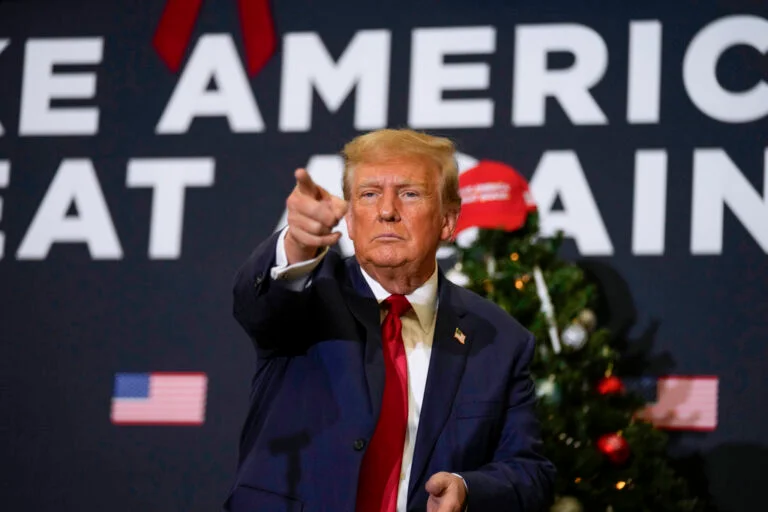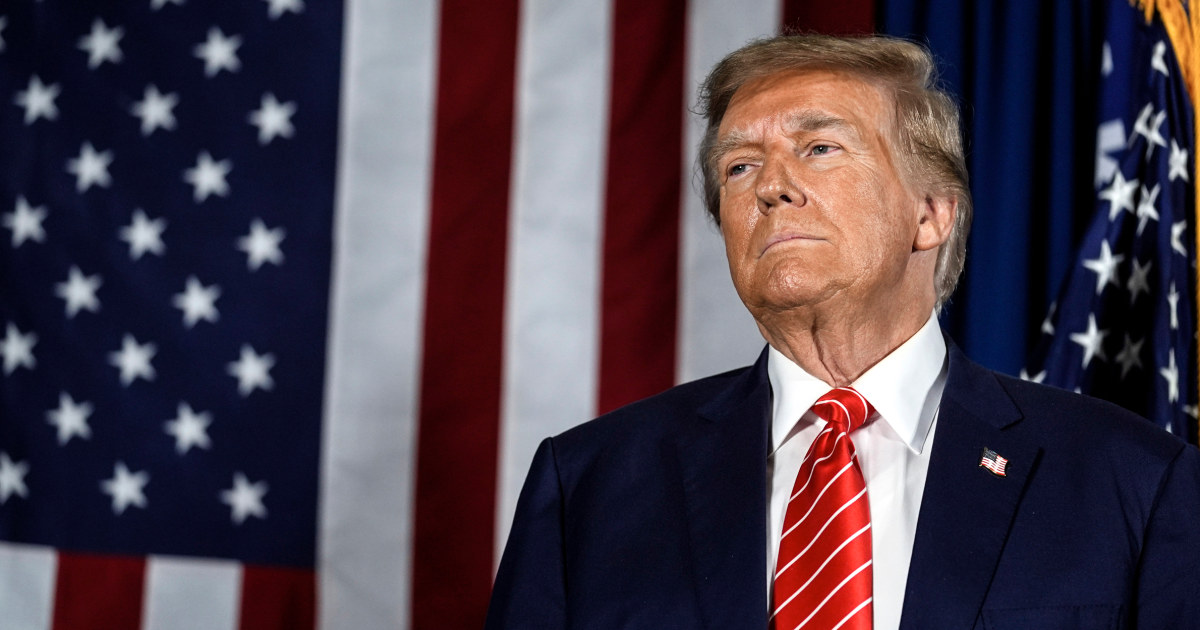The events of January 6, 2021, have become emblematic of chaos and disorder. Donald Trump’s legal team argues that similar chaos will ensue if the U.S. Supreme Court permits any state to exclude the former president from the 2024 ballot due to his involvement in efforts to obstruct the peaceful transfer of power.
The question of Trump’s eligibility to return to the presidency hinges on a single paragraph within the U.S. Constitution, which is far from unequivocal. Here’s an examination of what the relevant section of the 14th Amendment states, what it doesn’t clarify, and why it’s crucial in the ongoing legal proceedings.
Section 3 of the 14th Amendment contains a lengthy sentence outlining the conditions under which an individual can be barred from holding public office. However, since its enactment over 150 years ago, numerous intricate questions arising from its language have remained largely unanswered. The provision states:

Donald Trump (Credits: WHYY)
“No person shall be a Senator or Representative in Congress, or elector of President and Vice-President, or hold any office, civil or military, under the United States, or under any State, who, having previously taken an oath, as a member of Congress, or as an officer of the United States, or as a member of any State legislature, or as an executive or judicial officer of any State, to support the Constitution of the United States, shall have engaged in insurrection or rebellion against the same, or given aid or comfort to the enemies thereof. But Congress may by a vote of two-thirds of each House, remove such disability.”
In simpler terms, if someone who swore to uphold the Constitution participates in an insurrection, they forfeit the right to hold public office again. However, Section 3 does not explicitly mention the president or the presidency, provide a clear definition of insurrection, or specify who is responsible for enforcing these provisions.
The amendment’s drafters were primarily concerned about preventing former Confederate leaders from re-entering office after the Civil War. Yet, inherent ambiguities within the text and a lack of past legal precedents have sparked contentious debates over Trump’s eligibility for another presidential run.
Presently, the situation remains in limbo. Colorado’s Supreme Court issued a comprehensive ruling in December suggesting that Trump should be removed from the state’s primary ballot under various interpretations of the 14th Amendment.
However, recognizing the controversy surrounding the decision, the court suspended Trump’s removal from the ballot, allowing time for an appeal to the U.S. Supreme Court.
Pending a final verdict from the justices, Trump’s name remains on the Colorado ballot and elsewhere. Maine authorities have also sought to exclude Trump from their state’s ballot, pending the outcome of the Colorado case.
Trump’s legal team has presented several arguments to justify his inclusion on the ballot. They contend that Trump is not covered by the 14th Amendment’s disqualification provision since the president is not deemed an “officer of the United States.”
Furthermore, they argue that Trump’s actions leading up to and on January 6 do not meet the criteria of an “insurrection or rebellion,” and assert that only Congress, not state courts, can enforce this provision.
These arguments are likely to be central to the Supreme Court’s deliberations. The extent to which the court will delve into the merits of the accusations against the former president remains uncertain.
The implications of the Supreme Court’s ruling are significant. If the court rules in Trump’s favor on any of the legal arguments presented, the case will be dismissed, and he will remain on the ballot.
Some legal experts suggest that the court could allow Trump to continue his presidential bid but bar him from holding office again, citing the precise language of the 14th Amendment. However, such a ruling would merely defer the issue, potentially resurfacing if Trump were to win the election.
Conversely, if the Supreme Court decides that states have the authority to exclude Trump from the ballot under the 14th Amendment, he won’t be immediately disqualified nationwide.
Instead, individual states would reassess the matter. Colorado and Maine have indicated their intent to remove Trump from their ballots, but legal proceedings and appeals could prolong the resolution.
With Super Tuesday approaching on March 5, time favors Trump unless the Supreme Court swiftly intervenes to prevent his candidacy. A ruling against Trump could trigger additional legal battles and appeals, further entangling the issue in the judicial system.























